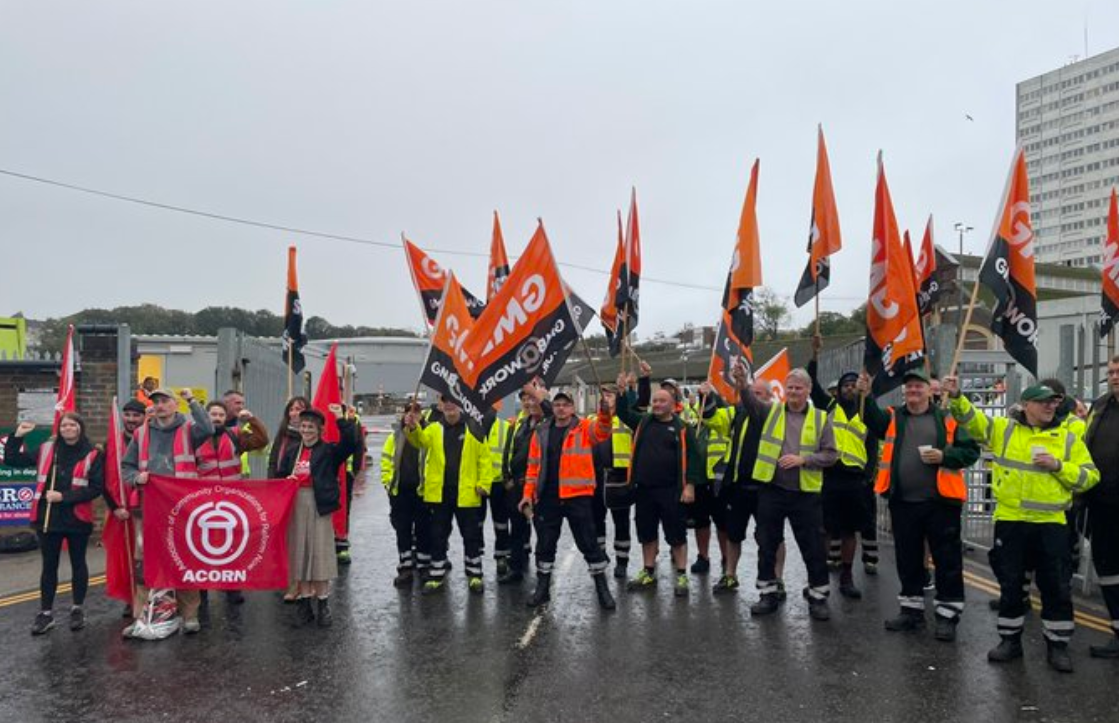There is often an assumption in the national media that Brighton and Hove is an affluent enclave on the south coast, largely unaffected by the poverty and deprivation seen in post-industrial areas of the country.
However, a report by Citizens Advice Brighton and Hove, published in April, made clear that poverty in the city is a serious problem, and one that is growing.
The report noted that 24 per cent of children in Hove and Brighton Pavilion were living in poverty, with the number increasing to 32 per cent in Brighton Kemptown.
The impact of the pandemic and utility price rises has led to a surge in Brighton and Hove residents having to rely on universal credit.
Use of food banks is increasing. The city is one of the least affordable places to rent or buy a property in the whole country, which compounds the problem of poverty and low wages.
The report also highlighted that single-parent households, households where someone has a disability, and BAME (black, Asian and minority ethnic) households were most likely to be in the deepest poverty, with that trend worsening through the pandemic.
Why is poverty on the rise in Brighton and Hove, and in the UK more broadly?
The most straightforward explanation is that real wages (the level of pay, adjusted for price rises) have stagnated since 2008, and are now starting to fall.
In other words, most people in the UK have seen no increase in their income and living standards for nearly 15 years and are about to get even poorer.
Perhaps this would be understandable if company profits and the overall level of wealth in the economy were also declining but the opposite is true.
The Sunday Times Rich List shows that the total wealth of the 10 richest people in the UK has quadrupled since 2009 and we have more billionaires than ever before (177).
According to Unite the Union, corporate profits are increasing (and that this factor is the primary driver of inflation).
Let that sink in. Since the financial crash of 2008, most people have had no increase in their income and living standards while the richest in society have dramatically increased their wealth.
This is one of the core facts about our economy and politics, from which many other problems are derived. We have a system where there is essentially no link between economic growth and living standards.
When the country gets richer, almost all of that wealth ends up going to those that are already very wealthy.
This outcome is inherent in a system where workers rights have been reduced, trade union membership is historically small, monetary policy has been focused on asset protection and taxes on big companies and wealthy individuals are kept low.
So next time you hear a national newspaper refer to “affluent Brighton and Hove”, or a Tory politician saying that they care about “levelling up”, remember that our city isn’t so different to the rest of the country – and that thousands of working adults, families and children are living in poverty.
The solution to widespread poverty and inequality in Brighton and Hove is a pay rise for ordinary working people – and that can only be achieved by a fundamental change to the balance of our economy.
Jacob Taylor is a Brighton resident.









My suggestion get a job in London. Easy six figures. Commute. Work hard. Have a big house in hove with money to spend.
Why are “Corporate Profits ” considered evil? Does the author want companies to fail and make losses? Companies pay tax, employ people, use profits to grow . Pension schemes invest in companies.
The TUC research took about 10 minutes they just added up the profits declared by the top companies without any analysis of what happened to the profits. In their binary World of workers and bosses that’s all they have to do
“Why are “Corporate Profits ” considered evil?”
Mounting evidence that companies are paying much less tax than we’d like, employing too few people in too poor a fashion, and using their profits to pay out at the top of the pyramid only.
“Most people have seen no increase in their income”. I’ve worked for multiple companies in Brighton since 2010 in different industries and had pay rises at each employment. Whoever you vote for there will still never be a large change in the system for a long time. If you want more money, find an industry that pays well. Don’t have the skills? Learn and adapt.